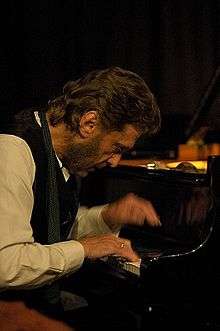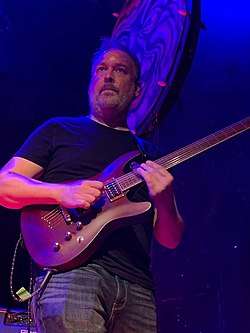List of King Crimson members
King Crimson are an English progressive rock band from London. Formed in January 1969, the group originally included bassist and vocalist Greg Lake, guitarist and keyboardist Robert Fripp, keyboardist and woodwind musician Ian McDonald, lyricist Peter Sinfield, and drummer Michael Giles. After a number of personnel changes, the group disbanded in 1974 but have since reformed on a number of occasions. As of the latest lineup change in 2020, King Crimson consists of Fripp (the sole constant member of the band), saxophonist and flautist Mel Collins (who first joined in 1970), bassist Tony Levin (who first joined in 1981), drummers Pat Mastelotto (who first joined in 1994) and Gavin Harrison (since 2007), guitarist and vocalist Jakko Jakszyk (since 2013), and drummer and keyboardist Jeremy Stacey (since 2016).
.jpg)

History
1969–1984
After some initial rehearsals starting in late November 1968, King Crimson were officially formed on 13 January 1969 with a lineup of Greg Lake on bass and vocals, Robert Fripp on guitar, Ian McDonald on woodwind and keyboards, Peter Sinfield as a lyricist and occasional synthesizer player, and Michael Giles on drums.[1] After the recording of the band's debut album In the Court of the Crimson King, McDonald and Giles left King Crimson, playing their last show on 16 December.[2] Lake remained for the follow-up, In the Wake of Poseidon, before leaving to form Emerson, Lake & Palmer in April 1970.[3] Fripp and Sinfield rebuilt the group after the album's release, finalising the new lineup by August with the addition of Gordon Haskell, Mel Collins and Andy McCulloch in place of Lake, McDonald and Giles, respectively.[1] After recording Lizard, both Haskell and McCulloch departed.[4]
Ian Wallace replaced McCulloch in December 1970,[1] and Raymond "Boz" Burrell took over from Haskell the following February. The group released Islands and returned to regular touring over the next year, Burrell, Collins and Wallace all left to join Alexis Korner's new group Snape in April 1972.[5] Sinfield had left the group a few months earlier. After the release of the Earthbound live album, Fripp rebuilt King Crimson again in July 1972 with the additions of former Family bassist and vocalist John Wetton, violinist and keyboardist David Cross, former Yes drummer Bill Bruford, and percussionist Jamie Muir.[1][6] After the first of two live shows scheduled upon completion of the group's new album Larks' Tongues in Aspic, Muir abruptly left King Crimson to pursue Buddhism.[7] The remaining four-piece issued Starless and Bible Black in March 1974.[8]
By the time the group began recording the follow-up Red in July 1974, King Crimson were a trio following Cross's departure at the end of the previous tour.[9] Later, on 25 September, Fripp announced that King Crimson had officially disbanded,[1] claiming that the group were "completely over for ever and ever".[10] After several years of side projects, Fripp formed a group called Discipline in April 1981 with former King Crimson drummer Bruford, as well as vocalist and guitarist Adrian Belew, and bassist and Chapman stick player Tony Levin. By the time the band's debut album Discipline was released in October, they had adopted the King Crimson moniker.[11] This lineup remained stable for three years, releasing follow-up albums Beat and Three of a Perfect Pair, before disbanding again upon the conclusion of a promotional touring cycle in July 1984.[12]
1994 onwards
After a ten-year break, King Crimson reformed again in 1994, with Fripp, Belew, Levin and Bruford joined by second bassist/Chapman stick player Trey Gunn and second drummer Pat Mastelotto.[1] This lineup, dubbed the "Double Trio", began rehearsing in April 1994 and released its only studio effort Thrak the following year.[13] After touring extensively, the group returned to the studio in May 1997 for the recording of their twelfth studio album, but faced difficulties making progress with the sessions.[14] Instead of disbanding again, Fripp decided to initiate a process of "fraKctalisation", splitting the six band members into four "ProjeKcts" of various lineups.[15] Each ProjeKct performed several live shows and wrote together, serving as "research and development" units for the full King Crimson incarnation.[14]
The ProjeKcts spawned several studio and live recordings, which were issued in 1999 as part of The ProjeKcts box set.[16] By this time the lineup of King Crimson was a "Double Duo" consisting of Belew, Fripp, Gunn and Mastelotto, following the departures of Bruford and Levin.[1] The band released two new studio albums, The Construkction of Light and The Power to Believe, before Gunn announced in November 2003 that he was leaving to explore new musical opportunities.[17] Levin returned to take his place.[1] Rehearsals subsequently began for planned new material, with a string of rehearsal sessions taking place in September 2004,[18] before the group disbanded for a third time.[1]
In June 2007, Fripp announced that a new lineup of King Crimson had been finalised for the band's 40th anniversary tour the following year.[19] In addition to the members of the 2004 incarnation, Gavin Harrison of Porcupine Tree was added as a second drummer.[20] The tour took place in August 2008,[21] after which members returned to focus on other projects.[1] In September 2013, despite claiming the previous year that he was retiring, Fripp announced another reformation of King Crimson.[22] In addition to Levin, Mastoletto and Harrison, the eighth lineup was confirmed to include returning saxophonist and flautist Mel Collins, new guitarist and vocalist Jakko Jakszyk, and third drummer Bill Rieflin.[23] In March 2016, Jeremy Stacey replaced Rieflin for the year's touring,[24] becoming a full member during the winter leg of the tour.[25] Rieflin switched over to being the band's first full-time keyboardist upon his return in January 2017.[26]
Rieflin was temporarily replaced again for an autumn 2017 tour by Chris Gibson.[27] For the band's 50th anniversary tour in 2019, it was announced that Rieflin would once more be temporarily replaced, this time by Theo Travis.[28] However, after a day of rehearsal, the band opted instead to do the 2019 tour as a seven-piece.[29] Rieflin's parts were divided among other band members, with Jakszyk and Collins adding keyboards to their on-stage rigs, and Levin once again using the synthesizer he used during the 1980s tours.[30]. Rieflin died of cancer on March 23rd, 2020, reducing the lineup to a septet.[31]
Members
- Note: Release contributions do not include albums issued as part of the King Crimson Collector's Club, or other limited releases.
Current
| Image | Name | Years active | Instruments | Release contributions |
|---|---|---|---|---|
| Robert Fripp |
|
|
all King Crimson releases | |
| Mel Collins |
|
|
| |
| Tony Levin |
|
|
| |
| Pat Mastelotto |
|
|
all King Crimson releases from Vrooom (1994) to Live in Japan (1996), from Live in Mexico City (1999) to Vrooom Vrooom (2001), and from Happy with What You Have to Be Happy With (2002) onwards | |
| Gavin Harrison |
|
|
all King Crimson releases from Live at the Orpheum (2015) onwards | |
| Jakko Jakszyk | 2013–present |
| ||
| Jeremy Stacey | 2016–present |
|
all King Crimson releases from Heroes (2017) onwards |
Former
| Image | Name | Years active | Instruments | Release contributions |
|---|---|---|---|---|
| Greg Lake | 1969–1970 (died 2016) |
|
| |
| Michael Giles | 1969 (session contributor in 1970) |
| ||
| Ian McDonald | 1969 (session contributor in 1974) |
|
| |
| Peter Sinfield | 1969-1971 |
|
| |
| Gordon Haskell | 1970 (session contributor in 1970) |
|
| |
| Andy McCulloch | 1970 | drums | Lizard (1970) | |
| Ian Wallace | 1970–1972 (died 2007) |
|
| |
| Raymond "Boz" Burrell | 1971–1972 (died 2006) |
| ||
| Bill Bruford |
|
|
| |
| John Wetton | 1972–1974 (died 2017) |
|
| |
| David Cross | 1972–1974 |
|
all King Crimson releases from Larks' Tongues in Aspic (1973) to USA (1975) | |
| Jamie Muir | 1972–1973 | percussion | Larks' Tongues in Aspic (1973) | |
| Adrian Belew |
|
|
all King Crimson releases from Discipline (1981) to Three of a Perfect Pair: Live in Japan (1984), from Vrooom (1994) to Live in Japan (1996), from Absent Lovers: Live in Montreal (1998) to Vrooom Vrooom (2001), and from Happy with What You Have to Be Happy With (2002) to Eyes Wide Open (2003) | |
| Trey Gunn | 1994–2003 |
|
all King Crimson releases from Vrooom (1994) to Live in Japan (1996), from Live in Mexico City (1999) to Vrooom Vrooom (2001), and from Happy with What You Have to Be Happy With (2002) to Eyes Wide Open (2003) | |
| Bill Rieflin |
Sabbaticals:
|
|
|
Touring
| Image | Name | Years active | Instruments | Details |
|---|---|---|---|---|
| Keith Tippett | 1970 |
|
Tippett performed alongside Greg Lake, Robert Fripp, Michael Giles, and Peter Giles on Top of the Pops on 25 March 1970.[32] He has also contributed to multiple King Crimson studio albums.[33] | |
| Peter Giles |
|
Peter Giles performed alongside Greg Lake, Robert Fripp, Michael Giles, and Keith Tippett on Top of the Pops on 25 March 1970.[32] He also contributed bass as a session musician on In the Wake of Poseidon. | ||
| Chris Gibson | 2017 |
|
Gibson temporarily replaced Bill Rieflin during an autumn 2017 concert tour.[27] | |
| Theo Travis | 2019 | Travis was named as substitute for Bill Rieflin during the band's 50th anniversary tour, but was let go from the lineup during rehearsals when the band opted not to have musicians deputising for Rieflin again.[28][29] |
Timeline
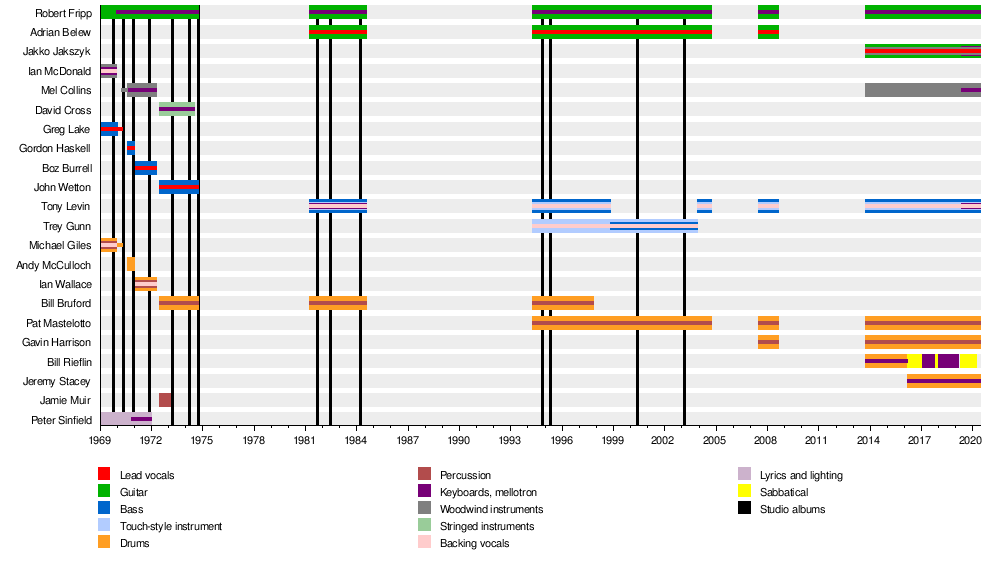
Lineups
King Crimson
| Period | Members | Releases |
|---|---|---|
| January – December 1969 ("King Crimson I") |
|
|
| January – April 1970 |
|
|
| August – September 1970 |
|
|
| December 1970 – January 1971 |
|
none – rehearsals only |
| February 1971 – April 1972 ("King Crimson II") |
|
|
| July 1972 – February 1973 ("King Crimson IIIa") |
|
|
| February 1973 – July 1974 ("King Crimson IIIb") |
|
|
| July – September 1974 ("King Crimson IIIc") |
|
|
| Band inactive September 1974 – April 1981 | ||
| April 1981 – July 1984 ("King Crimson IV") |
|
|
| Band inactive July 1984 – April 1994 | ||
| April 1994 – May 1997 ("King Crimson V") |
|
|
| Band inactive May 1997 – December 1999 (King Crimson is split into four lineups dubbed "The ProjeKcts") | ||
| December 1999 – November 2003 ("King Crimson VI") |
|
|
| November 2003 – September 2004 |
|
none – rehearsals only |
| Band inactive September 2004 – June 2007 | ||
| June 2007 – August 2008 ("King Crimson VII") |
|
none – 40th anniversary tour only |
| Band inactive August 2008 – September 2013 | ||
| September 2013 – March 2016 ("King Crimson VIIIa") |
|
|
| March 2016 – January 2017 ("King Crimson VIIIb") |
|
|
| January 2017 – April 2019 ("King Crimson IX") |
|
|
| May 2019 – March 2020 | none – touring only | |
| March 2020 – present |
|
none – touring only |
Definitive Formations
Robert Fripp, in the liner notes to the 2018 live album "Meltdown: Live in Mexico City", lists four specific incarnations of King Crimson as "definitive formations." These are:
- King Crimson I (1969)
- King Crimson IIIb (1974, final show only) and IIIc (1974)
- King Crimson IV (1981)
- King Crimson IX (2017, starting from the shows documented on the album)
The Double Trio (King Crimson V, 1994-97) is noted as "a special band, not a defining band."
Spin-off bands
| Period | Members | Releases |
|---|---|---|
| ProjeKct One (December 1997) |
|
|
| ProjeKct Two (November 1997 – July 1998) |
|
|
| ProjeKct Three (March 1999 and March 2003) |
|
|
| ProjeKct Four (October – November 1998) |
|
|
| ProjeKct X (December 1999 – May 2000) |
|
|
| 21st Century Schizoid Band (2002–2004) |
|
|
| ProjeKct Six (October 2006) |
|
none – Collector's Club releases only |
| Jakszyk, Fripp and Collins: A King Crimson ProjeKct (2010–2011) |
|
|
| The Crimson ProjeKct (2011–2014) |
|
|
References
- Eder, Bruce. "King Crimson: Biography & History". AllMusic. Retrieved 16 April 2019.
- Fripp, Robert (7 November 2016). "King Crimson 1969: A Personal Throughview from the Guitarist". Discipline Global Mobile. Retrieved 16 April 2019.
- Fuller, Graham (28 September 2009). "Why King Crimson are still prog-rock royalty". The Guardian. Retrieved 16 April 2019.
- Lynch, Dave. "Lizard - King Crimson: Songs, Reviews, Credits". AllMusic. Retrieved 16 April 2019.
- Smith, Sid (9 June 2018). "46 Years Ago Today". Discipline Global Mobile. Retrieved 16 April 2019.
- Fripp, Robert (31 August 1999). "Robert Fripp's Diary: World Central Held A Mass". Discipline Global Mobile. Retrieved 16 April 2019.
- Singleton, David (3 November 2016). "Larks Tongues in Aspic - The Long View". Discipline Global Mobile. Retrieved 16 April 2019.
- Eder, Bruce. "Starless and Bible Black - King Crimson: Songs, Reviews, Credits". AllMusic. Retrieved 16 April 2019.
- DeRiso, Nick (6 October 2015). "Revisiting King Crimson's Implosion on 'Red'". Ultimate Classic Rock. Retrieved 16 April 2019.
- Hughes, Rob (31 October 2014). "Robert Fripp, interview: 'I'm a very difficult person to work with'". The Daily Telegraph. Retrieved 16 April 2019.
- Singleton, David (3 November 2016). "Discipline - The Long View". Discipline Global Mobile. Retrieved 16 April 2019.
- Smith, Sid (14 March 2019). "A Perfect Trio". Discipline Global Mobile. Retrieved 16 April 2019.
- Fripp, Robert (23 March 2012). "Robert Fripp's Diary: DGM HQ: A Sunny Day". Discipline Global Mobile. Retrieved 16 April 2019.
- Planer, Lindsay. "Nashville Rehearsals - King Crimson: Songs, Reviews, Credits". AllMusic. Retrieved 16 April 2019.
- "Nashville Rehearsals". Discipline Global Mobile. Retrieved 16 April 2019.
- Hayes, Kelvin. "The ProjeKcts - King Crimson: Songs, Reviews, Credits". AllMusic. Retrieved 16 April 2019.
- Gunn, Trey (21 November 2003). "An Amazing Journey". Trey Gunn. Archived from the original on 2 April 2004. Retrieved 16 April 2019.
- "Sept 1, 2004: Ex Uno Plures". Discipline Global Mobile. Retrieved 16 April 2019.
- Smith, Sid (28 June 2007). "King Crimson Confirmed For 40th Anniversary Celebrations". Discipline Global Mobile. Retrieved 16 April 2019.
- Smith, Sid (19 November 2007). "The Return of King Crimson". Discipline Global Mobile. Retrieved 16 April 2019.
- Kelman, John (4 September 2008). "King Crimson: King Crimson: Park West, Chicago, Illinois August 7, 2008". All About Jazz. Retrieved 16 April 2019.
- Giles, Jeff (25 September 2013). "Robert Fripp Resurrects King Crimson". Ultimate Classic Rock. Retrieved 16 April 2019.
- "King Crimson unveil new-line up and 2014 tour plans". Uncut. 25 September 2013. Retrieved 16 April 2019.
- Munro, Scott (7 March 2016). "King Crimson call up drummer Jeremy Stacey". Prog. Retrieved 16 April 2019.
- Fripp, Robert (3 January 2017). "Robert Fripp's Diary: Bredonborough". Discipline Global Mobile. Retrieved 25 April 2020.
- Lifton, Dave (7 January 2017). "King Crimson Will Tour The U.S. In 2017". Ultimate Classic Rock. Retrieved 16 April 2019.
- Smith, Sid (13 October 2017). "Chris Gibson joins Crim". Discipline Global Mobile. Retrieved 16 April 2019.
- Shteamer, Hank (8 April 2019). "King Crimson's 50th Anniversary Press Day: 15 Things We Learned". Rolling Stone. Retrieved 16 April 2019.
- Fripp, Robert (4 May 2019). "Robert Fripp's Diary: Bredonborough". Discipline Global Mobile. Retrieved 5 May 2019.
- Levin, Tony (9 June 2019). "Tony Levin's Road Diary: Leipzig Warmup".
- "Bill Rieflin, Drummer for King Crimson, R.E.M., Ministry, Dead at 59". Rolling Stone. March 24, 2020. Retrieved April 25, 2020.
- Smith, Sid (1 April 2006). "KC Are Top Of The Pops!!!!!". Discipline Global Mobile. Retrieved 16 April 2019.
- "Keith Tippett: Credits". AllMusic. Retrieved 16 April 2019.
- Smith, Sid (2002). In The Court of King Crimson. Helter Skelter Publishing. p. 46.>
- Smith, Sid (2002). In The Court of King Crimson. Helter Skelter Publishing. pp. 112–116.>
- Smith, Sid (2002). In The Court of King Crimson. Helter Skelter Publishing. p. 143.
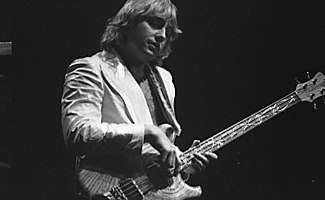
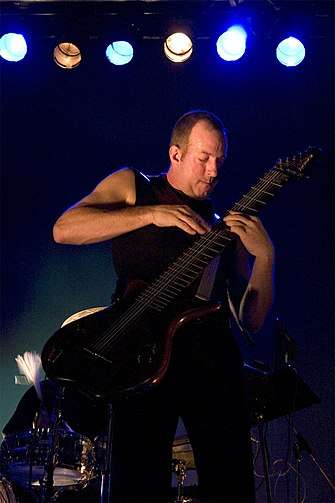
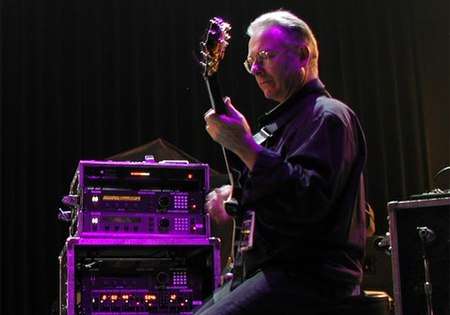
.jpg)

.jpg)


.jpg)
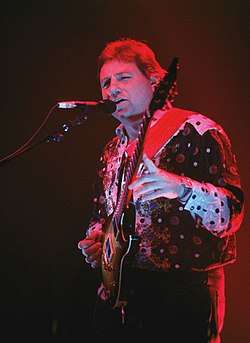
.jpg)
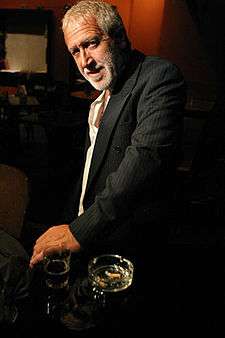
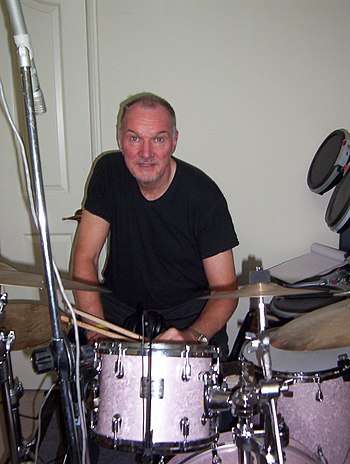
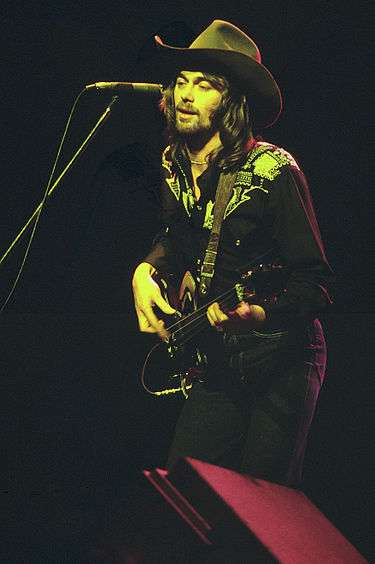
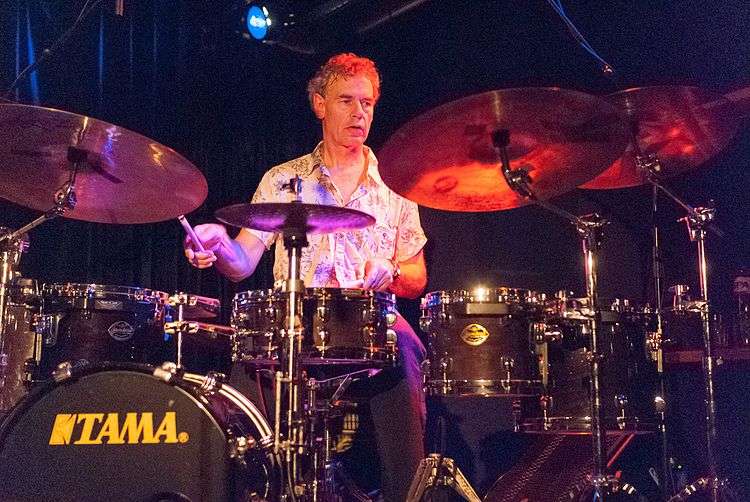
.jpg)

